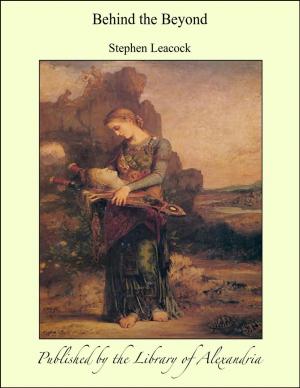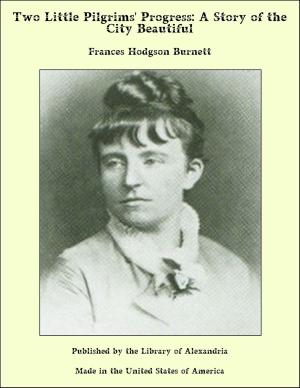Ada, the Betrayed: The Murder at the Old Smithy A Romance of Passion
Nonfiction, Religion & Spirituality, New Age, History, Fiction & Literature| Author: | James Malcolm Rymer | ISBN: | 9781465629296 |
| Publisher: | Library of Alexandria | Publication: | March 8, 2015 |
| Imprint: | Language: | English |
| Author: | James Malcolm Rymer |
| ISBN: | 9781465629296 |
| Publisher: | Library of Alexandria |
| Publication: | March 8, 2015 |
| Imprint: | |
| Language: | English |
It was towards the close of the year 1795 that a storm, unequalled in duration and fury, swept over one of the most fertile districts of England, spreading consternation and dismay among the inhabitants of several villages, and destroying in a few short hours the hopes of many an industrious family, who looked to the nearly ripened grain of the fertile fields for their means of subsistence through the coming winter. The day had been lowering and overcast. An unusual sultriness had pervaded the air, and although more than sixty miles of hill and dale laid between the spot to which we allude and the Northern Ocean, which washes the eastern shore of England, several sea birds (a most unwonted sight) had flown, screeching and wailing, over the rich corn-fields and promising orchards. The day had worn gradually on, and it was not until the sun was lost amid a mass of fiery clouds in the glowing west that any precise indications of the approaching tempest presented themselves. Then, however, when the long shadows from the trees began to lose their identity in the general gloom of the rapidly approaching night, a singular moaning wind began to blow from the north-west. The cattle showed alarm and uneasiness—the birds flew low and uncertainly—horses trembled in their stables, and the hoarse scream of various large birds of prey as they flew over the farm-house, or settled on the roofs, had a peculiarly discordant effect. It would seem as if there was something in the air which enabled the inferior animals to know and dread the awful strife of the elements which was about to ensue. The glowing clouds in the west rapidly disappeared, and the night fell over the land as if a black pall had been suddenly cast over the face of Nature. The wind momentarily increased in violence. Now it moaned like an evil spirit round the gable ends of the houses; then again, with a wild whistle and a rushing sound, it would sweep past the latticed windows like a wild animal seeking its prey. Occasionally there would be a lull in the tempest, and in one of these the heavens were lit up with a flash of lightning of such power and brilliancy, that all who saw it closed instantly their eyes in dismay, and trembled with apprehension. Then followed thunder—thunder that shook the houses to their foundations, and boomed and rattled in the sky with so awful a sound that many of the villagers sunk upon their knees to pray, for they thought the end of the world was at hand, and they should never see the blessed sun again. Mothers clasped their screaming children to their breasts, and wept in bitterness of heart. Strong men shook with fear, and when again the wind arose, and, like a giant’s arm, levelled hedges, trees, haystacks, and some houses, a cry of dismay arose from the villagers, and the bells were rung in the rural churches. Some screamed—some prayed—some wept and rung their hands. All was horror, uncertainty, and despair! The storm had lasted several hours, and still, the forked lightning darted in livid streaks from cloud to cloud. The awful thunder filled the air with its hundred echoes, and the wind swept over a scene of desolation, for the smiling corn-fields were no more; the laden fruit trees were levelled with the soil, and many a cottage had its humble thatch torn off, and presented but its bare walls to the moaning blast. The principle fury of the land storm seemed to have been levelled at a little village which occupied the gentle slope of a beautiful and fertile valley, some few miles from Ashby-de-la-Zouch, and through the lowest portion of which a branch of the river Derwent wound its serpentine course. The village was called Learmont, from the name of a noble family who, since the Norman conquest, had been the owners of the land.
It was towards the close of the year 1795 that a storm, unequalled in duration and fury, swept over one of the most fertile districts of England, spreading consternation and dismay among the inhabitants of several villages, and destroying in a few short hours the hopes of many an industrious family, who looked to the nearly ripened grain of the fertile fields for their means of subsistence through the coming winter. The day had been lowering and overcast. An unusual sultriness had pervaded the air, and although more than sixty miles of hill and dale laid between the spot to which we allude and the Northern Ocean, which washes the eastern shore of England, several sea birds (a most unwonted sight) had flown, screeching and wailing, over the rich corn-fields and promising orchards. The day had worn gradually on, and it was not until the sun was lost amid a mass of fiery clouds in the glowing west that any precise indications of the approaching tempest presented themselves. Then, however, when the long shadows from the trees began to lose their identity in the general gloom of the rapidly approaching night, a singular moaning wind began to blow from the north-west. The cattle showed alarm and uneasiness—the birds flew low and uncertainly—horses trembled in their stables, and the hoarse scream of various large birds of prey as they flew over the farm-house, or settled on the roofs, had a peculiarly discordant effect. It would seem as if there was something in the air which enabled the inferior animals to know and dread the awful strife of the elements which was about to ensue. The glowing clouds in the west rapidly disappeared, and the night fell over the land as if a black pall had been suddenly cast over the face of Nature. The wind momentarily increased in violence. Now it moaned like an evil spirit round the gable ends of the houses; then again, with a wild whistle and a rushing sound, it would sweep past the latticed windows like a wild animal seeking its prey. Occasionally there would be a lull in the tempest, and in one of these the heavens were lit up with a flash of lightning of such power and brilliancy, that all who saw it closed instantly their eyes in dismay, and trembled with apprehension. Then followed thunder—thunder that shook the houses to their foundations, and boomed and rattled in the sky with so awful a sound that many of the villagers sunk upon their knees to pray, for they thought the end of the world was at hand, and they should never see the blessed sun again. Mothers clasped their screaming children to their breasts, and wept in bitterness of heart. Strong men shook with fear, and when again the wind arose, and, like a giant’s arm, levelled hedges, trees, haystacks, and some houses, a cry of dismay arose from the villagers, and the bells were rung in the rural churches. Some screamed—some prayed—some wept and rung their hands. All was horror, uncertainty, and despair! The storm had lasted several hours, and still, the forked lightning darted in livid streaks from cloud to cloud. The awful thunder filled the air with its hundred echoes, and the wind swept over a scene of desolation, for the smiling corn-fields were no more; the laden fruit trees were levelled with the soil, and many a cottage had its humble thatch torn off, and presented but its bare walls to the moaning blast. The principle fury of the land storm seemed to have been levelled at a little village which occupied the gentle slope of a beautiful and fertile valley, some few miles from Ashby-de-la-Zouch, and through the lowest portion of which a branch of the river Derwent wound its serpentine course. The village was called Learmont, from the name of a noble family who, since the Norman conquest, had been the owners of the land.















